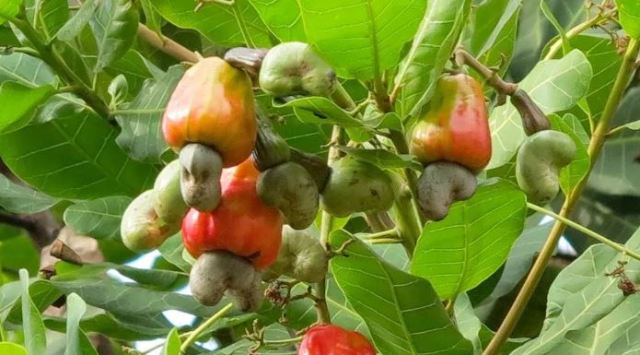June 25, 2019
The youth of the North District of the Volta Region, have been advised to take advantage of the ongoing Kpong Left Bank Irrigation Project (KLBIP) at Torgorme and go into agriculture to improve their standard of living.
Images by IT
Mr. Richard Collins Arku, District Chief Executive (DCE) of the area who gave the advice, said upon completion, KLBIP shall become the country’s largest irrigation facility, ensure all year round farming, increase crop yield and turn the area into a major agriculture hub and enhance economic activity.
Mr Arku, addressing a Public Accountability Forum by the Assembly to give accounts on its stewardship at Juapong, said agriculture will remain the area’s mainstay for a long time and the Government is keen at developing it.
He, therefore, cautioned the youth to not to focus their minds only on white collar jobs and pursue agriculture, which according to him, is now the world’s key source of jobs and employment, even in the developed economies, saying the sector is no longer for only the unschooled.
Mr. Arku said the $25.5 million Government project, shall irrigate over 2,000 hectares of land, directly benefit about 20 communities and employ about 12,000 people on completion, with rice, maize, soya beans, okra, cowpea, watermelon, cabbage, pepper and butter nut squash the main crops to be grown.
Mr. Arku also announced the take off of another project, a major Fish Farming Project by a Chinese group wooed in by the Assembly at Nyatikpo, to do Tilapi farming and is building its own hatchery for fingerlings to feed the farm, to become the country’s largest.
He said the company has engaged a 1,000 acre plot of land and will be employing 200 youths directly and several more indirectly in the interim, adding the project shall also sell out fingerlings to other farms.
Mr. Peter Heh, District Director of Agriculture said Government’s initiatives to improve incomes and lives, including Planting for Food and Jobs (SIFJ), Special Initiative on Rice (SIR), Planting for Export and Rural Development (PERD) and Rearing for Food and Jobs (RFJ) are being implemented in the District.
He said under SIR, high yielding rice seedlings that will produce about 30 bags of produce per acre, is available at a reduced price aid rice production in the area.
Mr. Heh said there is also a subsidized fertilizer at GH¢80 instead of GH¢200 per bag to cover an acre of rice farm.
According to him, Volta Region is now the country’s leading rice producer, with the North Tongu also doing well in the crop, and advised the people to take advantage of the initiatives in view of the good prospects it bring.
He said in the PERD scheme, cocoa, oil palm, cashew nut and coconut plantations are the options and the North Tongu was selected for oil palm, cashew and coconut areas.
Mr. Heh said the Directorate had nursed 600 oil Pam and 2,000 cashew nut seedlings for free distribution to farmers under the initiative.
He said the “RFJ”, involves animal rearing, in which hybrid animals would be supplied to beneficiaries to promote animal husbandry and enhance lives.
The Volta Region, he said has been allotted the pig and chicken option, while others were for goats, guinea fowls, sheep and others.
Mr. Heh said high yielding maize seedlings are available at GH¢3.00 per kilogram instead of GH¢10.00, aside tomatoes, cabbage and pepper seedlings and fertilizers also at subsidized rates for pick.
GNA
Reporters









 Cashew Cheese Sauce
Cashew Cheese Sauce
 Vegan Cheese & Béchamel Sauce
Vegan Cheese & Béchamel Sauce
 White Bean Cheese
White Bean Cheese
 Vegetable- Based Cheese Sauce
Vegetable- Based Cheese Sauce
 Store Bought Alternatives
Store Bought Alternatives
